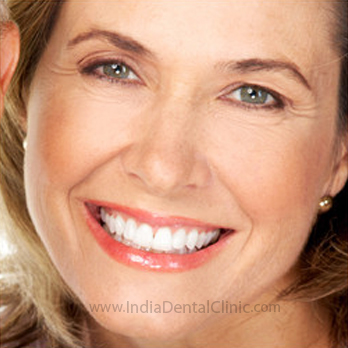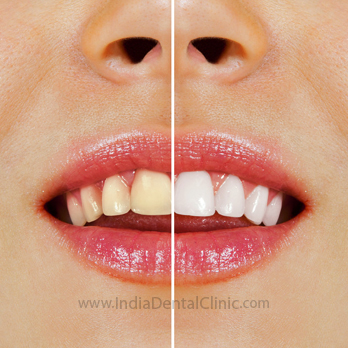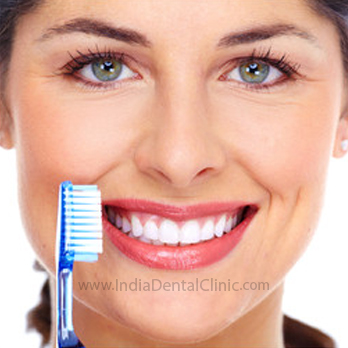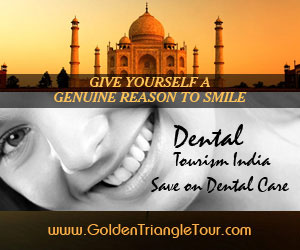TMJ-TMD Treatment
More On Oral & Maxillofacial Surgery
About OMF SurgeryCleft Lip & Palate
Cosmetic Jaw Surgery
Orthognathic Surgery
Wisdom Teeth
Oral Cancer
Anesthesia
TMJ-TMD Treatment Surgery in India
India Dental Clinic listing information of tmj-tmd treatment surgery centers in India and maxillofacial dental surgery hospitals performing TMJ surgery in India. Affordable cost of tmj-tmd treatment in India. Temporomandibular Disorders or Dysfunctions is one of the trickiest of problems that oral & maxillofacial surgeons are trained to treat. Several conditions may be related to TMD, but they can be quite varied, and they are often difficult to pinpoint. TM disorders can result when the jaw muscles or jaw joints are affected due to presence of osteoarthritis or rheumatoid arthritis in the TMJ. Two joints and several jaw muscles make it possible to open and close the mouth. They work together when you chew, speak, and swallow. These structures include muscles and ligaments, as well as the jaw bone, the mandible (lower jaw) with two joints, the TMJ's. The TM joint is one of the most complex joints in the body. Located on each side of the head, these joints work together and can make many different movements, including a combination of rotating and translocational (gliding) action, used when chewing and speaking. This may be one of the poses you find yourself when in pain, for which treatment may be possible with a chosen dental specialist in India Dental Clinic listing.
At TMJ treatment centers in India, it has often been noticed that in some patients the problem may be due to the teeth not being perfectly "straight". There are several muscles that function in tandem to help open and close the mouth. They control the lower jaw (mandible) as it moves forward, backward, and side-to-side. Both TM joints are involved in these movements. Each TM joint has a disc between the ball and socket (see diagram). The disc cushions the load while enabling the jaw to open widely and perform rotating and translocational movements. Any problem that prevents this complex system of muscles, ligaments, discs and bones from working together properly may result in a painful TMJ disorder. Treatment is to get a good occlusion or bite. Problem often specialists encounter is when a patient is seen with the most perfect bite possible with TMJ, and another patient with terrible occlusion without any TMJ symptoms! A truly healthy smile must be functionally sound with an optimal bite (occlusion). When the bite is off (malocclusion), trouble's not far behind most commonly in people between the ages of 20 and 40. That trouble can take the form of TMD or TMJ, or temporomandibular joint syndrome. Consulting dentists at dental clinics in India may work out a tmj treatment modality for your situation and symptoms.
Common symptoms of TMJ include:
• Frequent headaches or migraine
• Jaw pain or tenderness of the jaw
• Tooth loss in extraction of gum disease
• Daytime or nighttime clenching or grinding
• Shooting or biting pain
• Pain in the shoulder, neck and back
• Sudden numbness in arms or fingers
• Dull, aching facial pain
• Difficulty or discomfort in biting or chewing
• Clicking sound while chewing or opening the mouth
• Grating sensation while chewing
• Locking or decreased ability to open or close the mouth (lock jaw)
• Cracked fillings or tooth chipping
• Swelling on the side of the face
TMJ Diagnosis
The chosen dental specialist, oral & maxillofacial surgeon, listed with India Dental Clinic may run the diagnostics to help identify the source of the pain. The dentist would thoroughly examine your bite and take various appropriate dental x-rays. Often, it's a sinus, toothache or an early stage of periodontal disease. But for some pain, the cause is not so easily diagnosed. The pain could be related to the facial muscles, the jaw or temporomandibular joint, located in the front of the ear. Treatments for this pain may include stress reducing exercises, muscle relaxants, or wearing a mouth protector to prevent teeth grinding (bruxism). They've been successful for many and your dentist can recommend which is best for you. In general, the diagnostic studies followed for TM Joint diagnosis and evaluation are:
• X-rays of the TM Joints & Skull
• MRI (Magnetic Resonance Imaging)
• Electromyography (studies of muscle function)
• Motion Performance Studies
• Joint Vibration Analysis (a form of ultra-sound sonography)
• A neurological exam (used more frequently for patients with severe or chronic pain)
• Diagnostic Study Casts of the Mandible & Maxilla
• CT scan for bony details of the joint
• X-rays of the Dentition
It is often difficult to pinpoint where actually the problem lies. In the diagnostic stage itself for the complex cases, there may be more than one doctor involved. It becomes more so difficult some times to arrive at a consensus on a treatment. Some TM problems result from arthritis, dislocation, and injury. All of these conditions can cause pain and dysfunction. Muscles that move the joints are also subject to injury and disease. Injuries to the jaw, head or neck, and diseases such as arthritis, might result in some TM problems. Other factors that relate to the way the teeth fit together—the bite—may cause some types of TMD. Stressful social and/or work life (meeting targets in BPO’s, IT sector, software, banking & finance, manufacturing, service sectors, etc) is also thought to be one of the leading factors coming to notice at Indian dental clinics. TMD affects women of childbearing age more than men, or older men and women. In several cases the dentist may also involve Chiropractor or an Ayurveda stream of specialists as a holistic TMJ treatment approach.
Non-surgical basic TMJ Treatment
Your India Dental Clinic dentist may consider several options as there are several ways the TMJ disorders may be treated. Based on the initial diagnostic, your dentist will recommend what type of treatment is needed for your particular problem or even recommend that you be referred to a specialist. There are two basic types of treatment for TM Joint disorders: surgical and non-surgical, but it is generally agreed that in most cases the non-surgical approach should be taken first in an effort to restore comfort, and improve jaw function to an acceptable level. Part of your clinical examination includes checking the joints and muscles for tenderness, clicking, popping or difficulty moving. Your complete medical history may be reviewed. Besides taking x-rays, your dentist may make a “cast” of your teeth to see how your bite fits together. Your dentist may also request specialized x-rays for the TM joints. Depending on your case, the dentist may refer you to a physician or another specialist dentist. As per the diagnosis of an individual case, one or a combination of the following non-surgical treatments may be adopted:
• Your dentist may custom fabricate an intra-oral Orthotic called a Splint. The purpose of these Orthotics, which may be fitted to either the upper or lower jaws, and in some cases to both, is to re-position the Condyle Head in the Joint space to a more normal position, thereby relieving the stresses, and pressures, being placed on the tissues of the Joints, and their related supporting structures allowing them to heal.
• Your dentist may recommend physical therapy treatments that might include Ultra-sound, and an exercise rehabilitation program.
• The medications like anti-inflammatory, and muscle relaxants, and such other prescription medications as may be applicable to the case may be recommend.
• The patients needing stress management include any number of modalities from bio-feedback training to counseling, minimally invasive "joint flushes," as may be recommended in consultation with your treating specialist TMJ practitioner. Biofeedback simply means that you are given information about your body so you can change it.
• The dentist or physical therapist may recommend applying moist heat or cold packs after exercising. It is normally applied alternatively as a routine a few times each day. Cut foods into very small pieces before eating to decrease the amount of chewing required.
• Bite correction dental treatments may be recommended for replace missing teeth; use crowns, bridges, implants or braces to balance the biting surfaces of your teeth or to correct a bite problem.
• Avoid hyperactivity in jaw movements like chewing gum, intense yelling or singing.
• Maintain good posture. Avoid resting your chin on your hand and making angled hands-free posture while talking on telephone. This helps reduce neck and facial pain.
• Contiously keep your teeth slightly apart as it helps relieve pressure on the jaw and also keeps clenching or grinding during the day in check.
Non-surgical advanced TMJ Treatments
The tricky problem as the TMJ syndrome is, your dentist may suggest one or more of the following if the basic treatments as mentioned above have not been helpful:
• Transcutaneous electrical nerve stimulation (TENS). This therapy aims to provide pain relief by relaxing the jaw joint and facial muscles using low-level electrical currents.
• Ultrasound. Ultrasound treatment procedure is adopted to apply deep heat to the TMJ to relieve soreness or improve mobility.
• Trigger-point injections. This treatment procedure aims to relieve pain by injecting pain medication or anesthesia into tender facial muscles called "trigger points".
• Radio wave therapy. This treatment procedure aims at increasing the blood flow by the use of radio waves that create a low level electrical stimulation to the joint. Often the patient experiences relief of pain in the joint.
TMJ Surgery in India
The surgical intervention maxillofacial dental hospital in India is considered only after all other treatment options as mentioned above have been tried out and none has worked to reduce the severity of pain. It is important to understand that the surgery undertaken is irreversible. There are three types of surgery for TMD: arthrocentesis, arthroscopy and open-joint surgery. The type of surgery needed depends on the TMD problem.
• Arthrocentesis. Depending upon the type of TMD syndrome, the first step taken in the surgical intervention is called Arthrocentesis which is a minor procedure performed in the office under general anesthesia. It is performed for sudden-onset, closed lock cases (restricted jaw opening) in patients with no significant prior history of TMJ problems. The surgery involves inserting needles inside the affected joint and washing out the joint with sterile fluids. Occasionally, the procedure may involve inserting a blunt instrument inside of the joint. The instrument is used in a sweeping motion to remove tissue adhesion bands and to dislodge a disc that is stuck in front of the condyle (the part of your TMJ consisting of the "ball" portion of the "ball and socket")
• Arthroscopy. After the diagnostics have been completed indicating Arthroscopy procedure, patients undergoing surgery under general anesthesia. The specialist oral surgeon makes a small incision in front of the ear and inserts a small, thin instrument that contains a lens and light. This instrument is hooked up to a video screen, allowing the surgeon to examine the TMJ and surrounding area. Depending on the cause of the TMD, the surgeon may remove inflamed tissue or realign the disc or condyle. Compared with open surgery, this surgery is less invasive, leaves less scarring, and is associated with minimal complications and a shorter recovery time. Depending on the cause of the TMD, arthroscopy may not be possible, and open-joint surgery may be necessary.
• Open-joint surgery. The procedure is performed giving patients a general anesthesia. Unlike arthroscopy, the entire area around the TMJ is opened so that the surgeon can get a full view and better access. There are many types of open-joint surgeries. This treatment may be necessary if the bony structures that comprise the jaw joint are deteriorating; there are tumors in or around your TMJ; or there is severe scarring or chips of bone in the joint. Compared with arthroscopy, open-joint surgery results in a longer healing time and there is a greater chance of scarring and nerve injury.
More dental deals in Other Cities

Get 20% Off On Teeth Cleaning
Special Price - 500 (INR-Indian Rupee )Treatments Covered-
- Teeth Cleaning
View Details Pune

Best Dental Care for Bride and Groom
Special Price - 6750 (INR-Indian Rupee )Treatments Covered-
- Professional Teeth Whitening
View Details Mumbai

Free Electronic toothbrush for Orthodontic patient
Special Price - 19000 (INR-Indian Rupee )Treatments Covered-
- Clear Braces
- Dental Braces
- Invisalign
View Details Mysore

